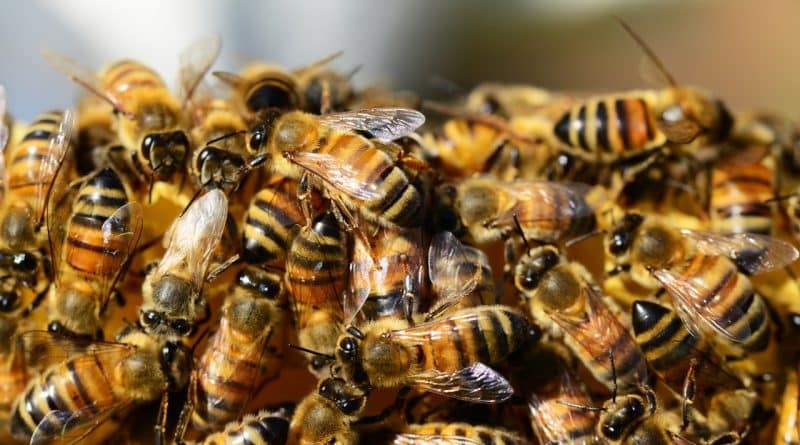
Problem neighbors can be different. They can behave loudly, party until the morning, start the repair at the wrong time, or to be aggressive bees, who wanted to build their hive under your roof.
Exactly what happened in one of the houses in hillside, new Jersey, where honeybees in the amount of 30,000 individuals have built themselves a hive of gigantic proportions, having accumulated there in 40 pounds of honey.
The home owner told reporters CBS New York that the problem with bees emerged a few weeks ago. In recent years they have started especially loud buzz, coming together, so it was decided to call in a specialist who was supposed to save the house from uninvited guests, who did not hesitate to actively show aggression toward people.
Mickey Hegedus, beekeeper, arrived on a call, could not believe his eyes when he opened the wall. It turned out that the house was chosen by the so-called Africanized bees. This is a special, weakonomics group of honey bees, characterized by highly aggressive behavior. Such bees arose as a result of ipodvideo hybridization and breeding, because of its aggressiveness, the faster they build the hive and collect more honey.
The beekeeper assumes that the bees have entered the house through an external opening for wiring.
According to the Association of beekeepers of new Jersey, honey bees cannot be destroyed. Their «should be left alone,» and to disturb the hive only if it «interferes with the activities of man.» In this case hive needs to be removed without causing significant harm to the insects. In new Jersey and in other States the law to kill honey bees without the prior permission of the relevant authorities.
Hegedus told the Washington Post that he was able to save 95% of the hive, but due to the fact that the bees were extremely aggressive, he had to release them in Mountainside, new Jersey. The beekeeper just took 5 hoursfor it to save a residential home from a buzzing swarm of bees.